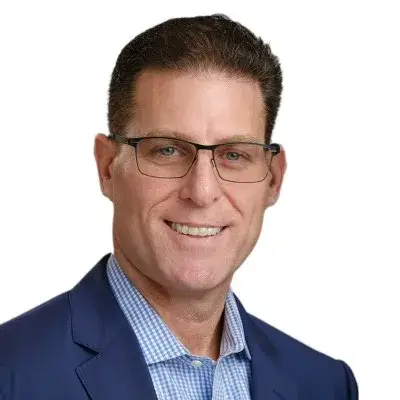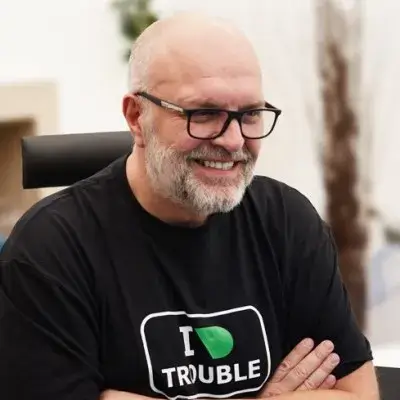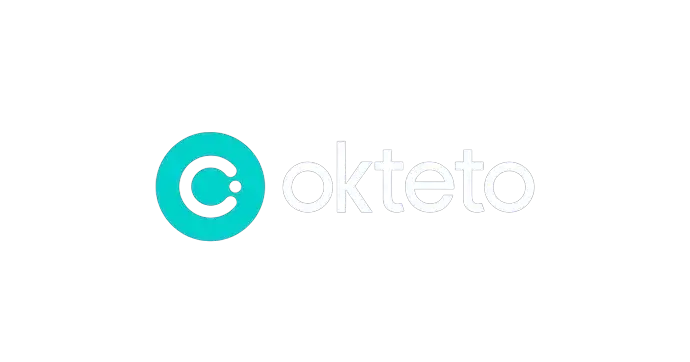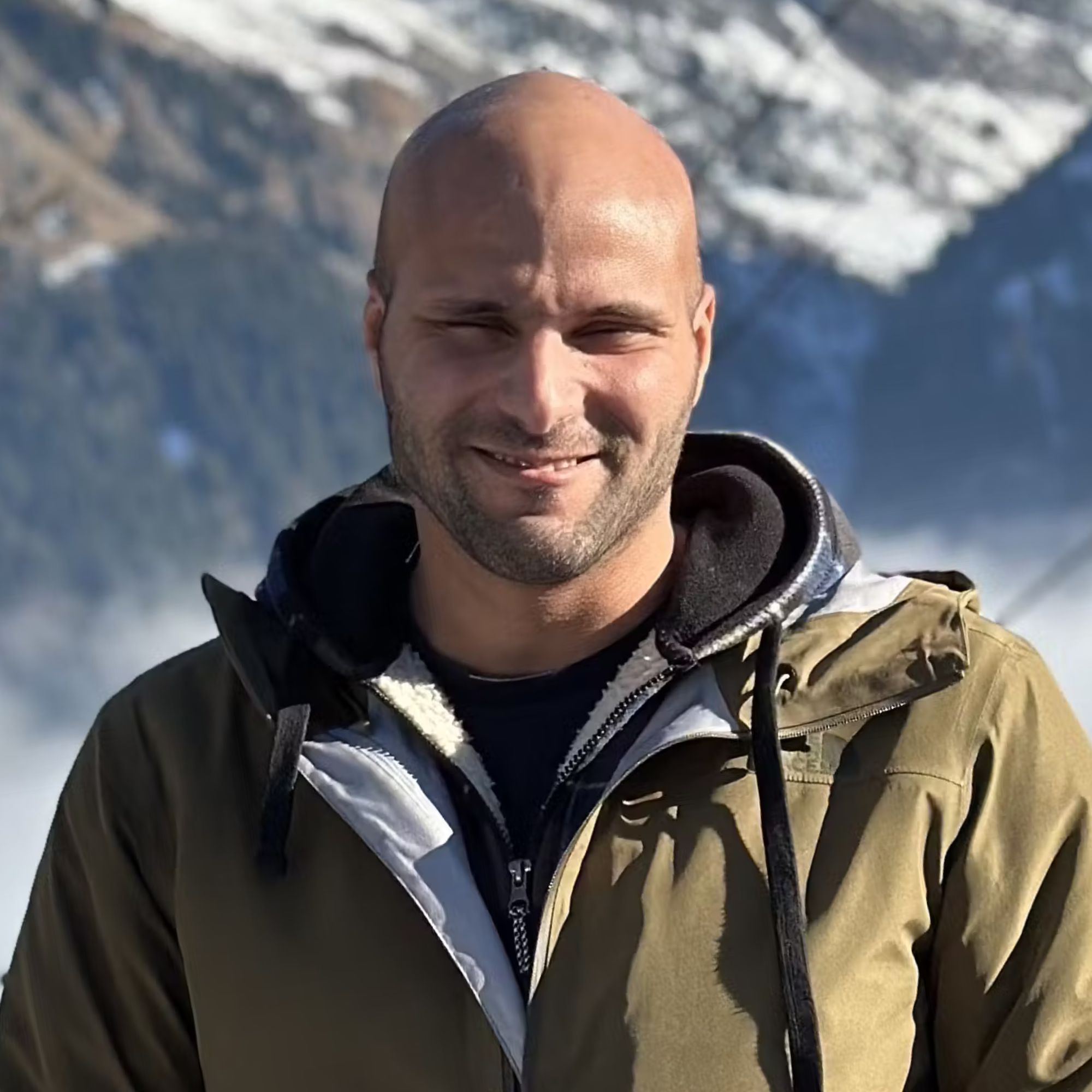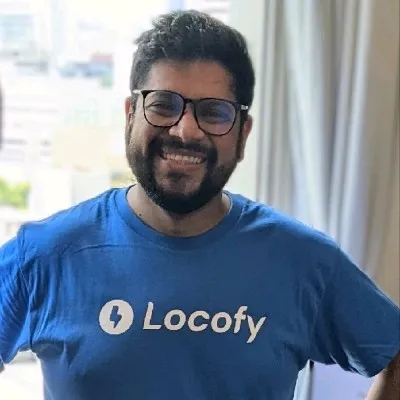Ready to launch your own podcast? Book a strategy call.
Frontlines.io | Where B2B Founders Talk GTM.
Strategic Communications Advisory For Visionary Founders
Conversation
Highlights
From Microsoft Engineer to Defense Tech: How Meroxa’s CEO is Building a Different Kind of Data Company
Landing NASA as a customer isn’t a typical startup story. But for DeVaris Brown, CEO of Meroxa, it’s part of a deliberate strategy that challenges conventional Silicon Valley wisdom about government contracts.
In a recent episode of Category Visionaries, Brown shared his journey of building Meroxa, a company that helps organizations move data between systems using code. What’s particularly fascinating is how the company has turned government contracts into a powerful growth engine, while many startups actively avoid this path.
The Unexpected Path to Product-Market Fit
When asked about product-market fit, DeVaris is refreshingly candid: “I would say we’ve reached product market fit in the government’s fit. Commercial and enterprise, we’re still searching for that, if I’m being honest.”
This admission reveals an important truth about finding product-market fit – sometimes it comes from unexpected places. While many startups chase enterprise deals or consumer markets, Meroxa found its initial success working with government agencies like the Air Force and Space Force before landing NASA as a customer.
Building Trust Through Execution
The conventional wisdom suggests government contracts are slow, bureaucratic nightmares. But DeVaris offers a different perspective: “We’ve just shown time and time again that we can just take on very tough problems, turn them around very fast and do it at a very high quality.”
This approach has led to a surprising discovery about the government market: “The government is such a good place, especially Department of Defense, as a source of business. There’s so many problems that could get solved, and there’s a big pot of gold at the end of every one of those rainbows.”
The Power of Complementary Leadership
One of the most valuable insights DeVaris shares is about the importance of building a well-rounded leadership team: “Me and my Co-Founder, best in the world at building… The thing that we’re not great at is selling.”
This self-awareness led to a crucial realization: “You have to find people around you that have the same hustle mindset, that have the same work ethic, that have the same intellectual curiosity to go out and do those things, that have expertise in the area that you just don’t possess.”
Navigating the Government Sector
For founders considering government contracts, DeVaris offers practical advice: “It just takes time. It’s more paperwork than you probably have ever done in your entire life, but at the end of the day, it’s all worth it. And if you do a great job, they will be your biggest advocate for you.”
He also emphasizes the breadth of opportunities beyond defense: “The government isn’t just defense… Department of Energy, that’s at the federal level, right? Like there’s state and local and municipal and county. There’s so many different ways that you can get involved in it.”
The Scale Advantage
Working with government agencies has provided Meroxa with powerful proof points for other markets. As DeVaris explains: “If you wonder about scale, a single flight generates so much data per second, we’re handling billions of records… You can’t fake scale, right? You can’t fake complexity.”
Looking Forward
DeVaris projects that in a few years, Meroxa’s revenue split will be “60% to 70% government, 30% to 40% commercial.” This isn’t just about revenue – it’s about building multiple billion-dollar verticals across both government and commercial sectors.
His experience offers a valuable lesson for founders: sometimes the best growth strategy isn’t following the conventional Silicon Valley playbook. By being open to government contracts and executing at a high level, Meroxa has found a path to scale that many startups overlook.
For founders building technical products, DeVaris’s journey suggests that government contracts shouldn’t be dismissed as too difficult or bureaucratic. With the right approach and commitment to execution, they can become a powerful channel for growth while building credibility for commercial markets.
The key is to focus on execution rather than getting caught up in conventional startup wisdom. As DeVaris puts it: “Just get in and do great work and don’t pay attention to timelines and what other competitors are doing… Just go in and do your job and do it at the best levels because it’s literally a faucet that never stops flowing.”
Actionable
Takeaways
Embrace Constraints as a Catalyst for Focus:
DeVaris credits the pandemic lockdowns in Meroxa's early days with providing a distraction-free environment to concentrate on building the core product. While operating under constraints is never easy, founders can reframe these limitations as an opportunity to ruthlessly prioritize and make faster decisions. Embracing constraints with creativity and grit can lead to breakthrough progress.
Establish Credibility Through Lighthouse Customers:
Meroxa's work with NASA and other government agencies played a crucial role in validating the platform's ability to process data at immense scale and complexity. For deep-tech startups, landing lighthouse customers who can pressure-test the product in demanding real-world scenarios is invaluable for earning the trust of prospects. Founders should identify and pursue these marquee accounts as an accelerant for broader adoption.
Assemble a Team That Augments Your Weaknesses:
DeVaris openly acknowledges that while he and his co-founder excel at building product, they have gaps in their sales expertise. His advice to founders is to hire for complementary skill sets rather than trying to be the "last stop" for every function. Self-awareness about your strengths and weaknesses as a leader is critical to constructing a well-rounded team equipped to execute across the full range of startup challenges.
Recognize the Tradeoffs in Early Customer Selection:
Meroxa's decision to work with government and military clients, while lucrative, came with some moral complexity as a Black founder. DeVaris stresses the importance of having open conversations with employees about where to draw ethical lines while also acknowledging the realities of needing to generate revenue to sustain the business. Founders must grapple with these tradeoffs transparently and establish clear principles for customer selection.
Find a Support System to Combat Founder Loneliness:
DeVaris emphasizes the emotional toll of being a founder and the pervasive sense of isolation that comes with the top job. His recommendation is to actively seek out peer groups, executive coaches, and mental health resources to process the inevitable ups and downs of the journey. Founders shouldn't try to shoulder the burden alone or feel embarrassed about needing support - connecting with others in the same boat is a game-changer.

